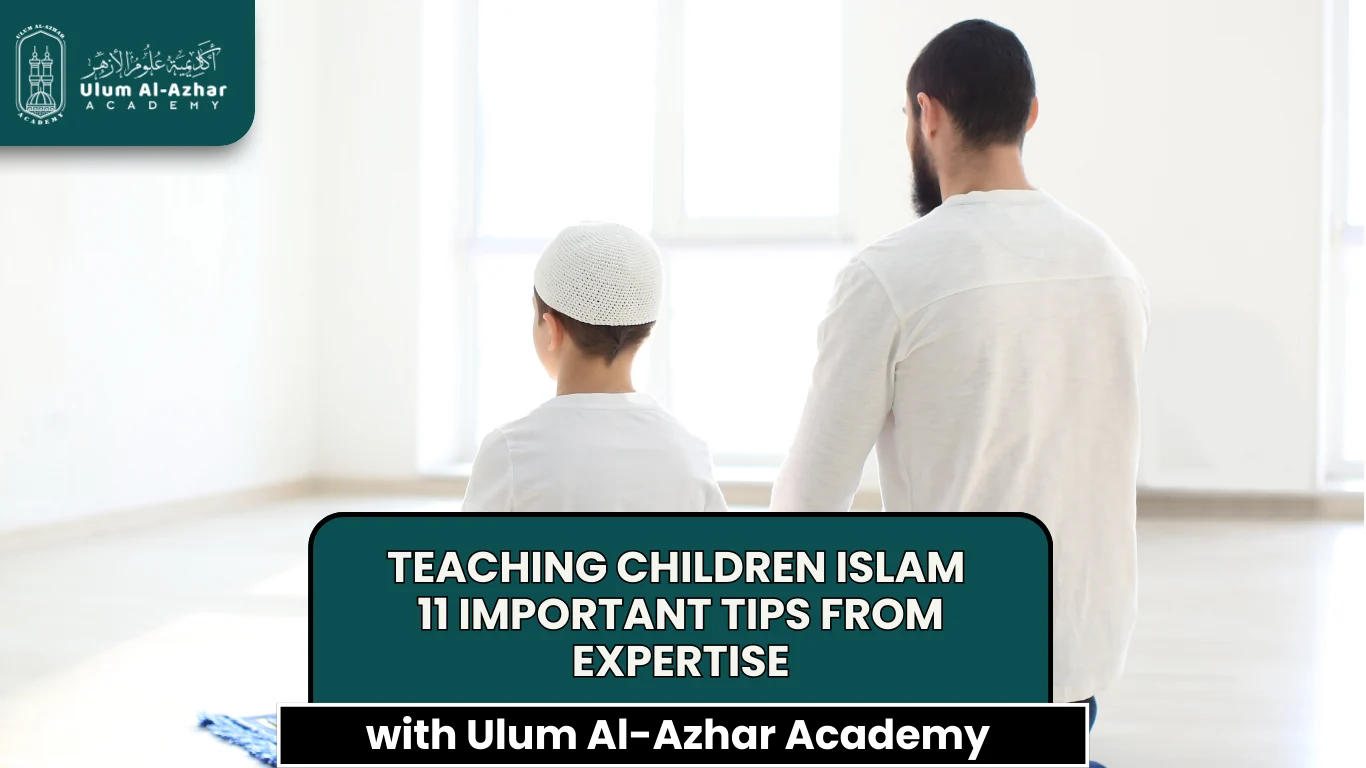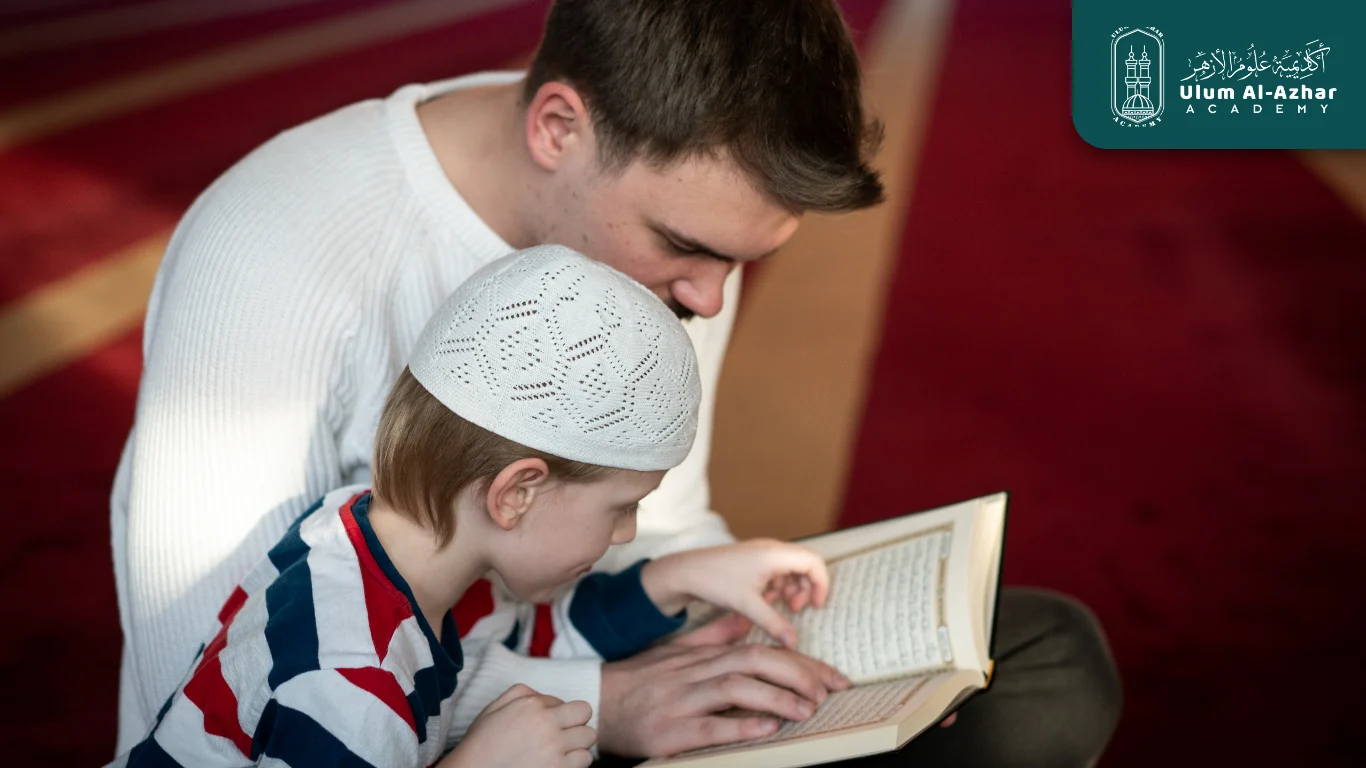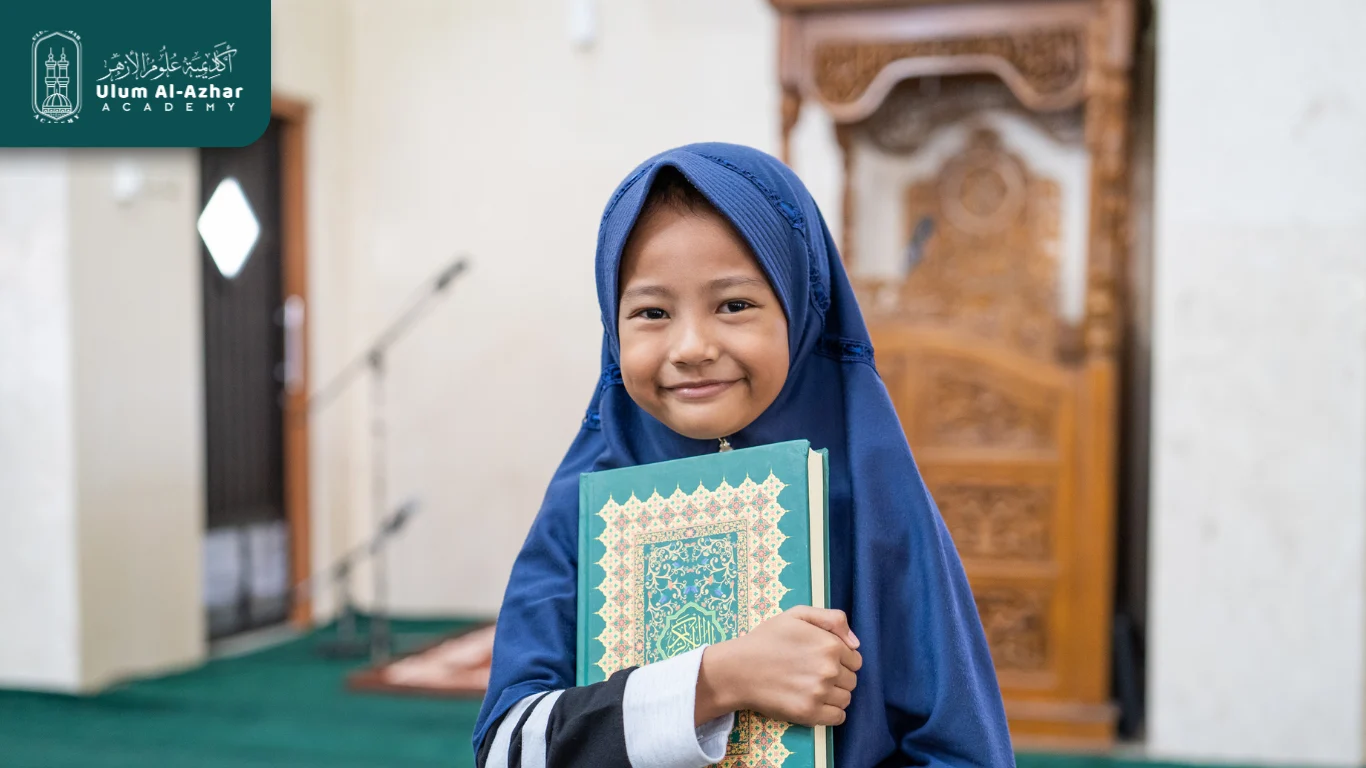
Teaching Children Islam: 11 Important Tips From Expertise
If you’re concerned about the Islamic upbringing of your growing child and the challenges that come with it, we completely understand the importance of teaching children Islam and instilling a love for the Deen of Allah in their young hearts.
As children grow, they interact with people from different cultures and religions, making it challenging to keep them connected to their own cultural and religious roots.
To assist you in this journey of teaching children Islam, here are some tips on how to teach kids about Islam in a way that doesn’t feel burdensome.
Importance Of Teaching Children Islam
Teaching children Islam is crucial for children born into the faith, as it helps them understand and internalize the principles and values of Islam, which are vital for their spiritual and moral growth.
Although children may naturally incline towards faith, they still require guidance and nurturing to fully appreciate the beauty and wisdom of Islam.
By providing a solid foundation in Islamic beliefs, practices, and values, Islamic education teaches children about the oneness of Allah, the importance of prayer, the significance of charity, and the value of good character.
Here are more benefits of teaching children Islam:
- Helps children form a strong sense of identity and belonging within the Muslim community, which is key for their social and emotional well-being.
- Moreover, Islamic education goes beyond learning the Quran and Hadith.
- It offers a comprehensive understanding of Islam that includes its history, culture, and traditions, helping children appreciate the diversity and richness of the Muslim world.
- This broad perspective, rooted in Islamic teachings, fosters a global outlook.
- Teaching children Islam also promotes the development of critical thinking skills, encouraging children to apply Islamic principles to real-world issues.
- It motivates them to ask questions, seek knowledge, and engage in intellectual discourse, all of which are vital for their academic, intellectual, and personal growth.
In essence, teaching children Islam equips children with a strong foundation in Islam, essential for their spiritual, moral, intellectual, and social development.
It prepares them to become well-rounded individuals grounded in Islamic values and principles, enabling them to contribute positively to society.
Tips For Teaching Children Islam
Here are the most important tips for teaching children Islam correctly:
Building a Connection with Allah
The first step in teaching your children the Quran is to help them build a strong connection with Allah.
Frequently remind them of Allah’s mercy and love, especially for children, and talk about His countless blessings and the creation of the universe for humankind.
This approach fosters a deeper bond with Allah and draws them towards learning more about Islam.
Sharing Stories of Young Sahabah
Children are often motivated by examples. Just as they strive to excel when hearing about a successful cousin, they can be inspired by the stories of young Sahabah (companions of the Prophet ﷺ) who embraced Islam early.
Share stories of young companions such as Ali Ibn Abi Talib, who accepted Islam at the age of 10, Uqba bin Amir at 14, and both Jabir bin Abdullah and Zayd bin Harise at 15.
These stories motivate children to start their Islamic journey at a young age.
Making Learning Fun
Engage your children in fun activities related to learning about Islam. This approach enhances their enthusiasm for the religion.
Whether it’s Islamic studies or Quran memorization, use various enjoyable teaching methods to keep their interest alive.
Leading by Example
Children tend to emulate what they observe rather than what they are told. If you encourage your child to pray five times a day, make sure you practice it yourself.
If you teach your daughters about the importance of the Hijab, practice it too. By embodying Quranic teachings, you set the best example for your children on how to live as a Muslim.

Teaching Them Dua
Instill the habit of making Dua (supplication) from an early age. Teach your children to regularly ask Allah for help and make Dua, guiding them to memorize daily supplications such as those for traveling, before eating, and before sleeping.
Understanding the importance of Dua early on can shape their faith significantly.
Using a Customized Prayer Mat
To encourage your children’s interest in Salah (prayer), consider getting them a customized prayer mat that they would enjoy using.
This personal touch makes them feel responsible and grown-up, enhancing their commitment to praying regularly.
You could also create a dedicated prayer corner with a Quran and prayer mat, making the act of praying more special.
Providing Islamic Books for Children
Children’s Islamic books, filled with engaging illustrations and designs, can significantly aid in teaching them about Islam.
Let your children explore these books, which visually depict Islamic teachings, making the learning process enjoyable and relatable.
Sending Them to the Masjid
Encouraging children to attend the Masjid is important, as it helps them learn discipline and the practice of praying within a community.
Interacting with other children of the same age can also enrich their understanding and appreciation of Islamic teachings.
The Age of Islamic Maturity
Girls reach the age of Islamic maturity sooner than boys. It is important to start teaching them about Islamic laws and practices a few years before they reach this age, ensuring they are well-prepared to fulfill their religious duties.
The Obligatory Acts
Parents have the responsibility to teach their children about the obligatory acts of worship in Islam, which are essential practices demonstrating their faith.
Key obligatory acts include:
- Prayer (Salah)
- Charity (Zakat)
- Fasting (Sawm)
- Pilgrimage (Hajj)
- Striving for the cause of Allah (Jihad)
- Enjoining good and forbidding evil
- Islamic taxes (such as Khums)
- Loving Allah and His friends (Tawalla)
- Bearing animosity towards Allah’s enemies (Tabarra)
These actions, rooted in core beliefs, are essential demonstrations of one’s commitment to Islam.
The Five Types of Acts
As children grow older and can distinguish between right and wrong, teach them about the five types of acts in Islam:
- Wajib (Obligatory): Actions that must be performed; neglecting them is a sin (e.g., prayer).
- Haram (Forbidden): Actions that are sinful if performed (e.g., backbiting).
- Mustahabb (Recommended): Actions that are encouraged and bring rewards (e.g., reciting dhikr).
- Makruh (Disliked): Actions that are better avoided but not sinful if done (e.g., urinating while standing).
- Mubah (Neutral): Actions that are neither encouraged nor discouraged (e.g., eating, drinking, sleeping).
By incorporating these strategies, you can effectively nurture a strong, positive relationship between your children and their Islamic faith.
The Age of Islamic Maturity
Teaching Children Islam Age
Starting teaching children Islam early is beneficial. When children reach the age of two or three and begin speaking, you can introduce them to basic concepts about Allah, such as:
- His role as the Creator of everything.
- Teach them simple Islamic phrases like Allahu Akbar(الله أكبر), Subhanallah(سبحان الله), and La ilaha illa Allah (لا إله إلا الله).
At this young age, there’s no need to delve into complex explanations about Islam.
It’s sufficient for them to learn these short phrases and have a basic awareness of Allah.
As their cognitive abilities develop, you can gradually introduce more profound aspects of Islam when they are capable of understanding them better.

Simple Strategies For Teaching Children Islam
Teaching children Islam can be approached in various ways. One of the most important methods is to be a good example. In addition to this, consider the following strategies:
- Focus on enhancing your own understanding and knowledge of Islam.
- Equip children with the tools they need to learn, such as books and educational resources.
- Create a healthy and positive environment that nurtures their spiritual growth.
- Engage in storytime, sharing stories from Islamic history and the Quran.
- Regularly test their knowledge and provide frequent reminders to reinforce learning.
- Plan activities that connect them to Islamic teachings and practices.
- Incorporate games and fun activities to make learning enjoyable.
- Keep them involved in the Islamic community to foster a sense of belonging.
- Utilize available resources, such as online platforms, apps, and local Islamic centers.
By using these strategies, you can effectively guide your children in learning about Islam and developing a strong connection to their faith.
Learn Sharia Online With Ulum Al Azhar!
The academy features:
- Authentic syllabuses were developed by scholars from Al-Azhar in Egypt.
- A team of certified instructors from Al-Azhar University who are fluent in English and provide step-by-step guidance to help you achieve your learning goals.
- One-on-one private classes ensure 100% comprehension and greater convenience.
- Affordable course prices with various discounts.
Are you eager to deepen your understanding and teaching children Islam strategies? Ulum Al Azhar offers comprehensive courses that delve into the intricacies of Islamic prayers and other key aspects of Islamic knowledge.
By enrolling today, you can embark on a journey of spiritual growth and enlightenment and learn teaching children Islam.
Conclusion To Teaching Children Islam
These are just a few methods for teaching children Islam. It’s essential to educate them about key aspects of the faith, including Allah, the Day of Judgement, the Quran, and Prophet Muhammad (Pease Upon Him).
As well as understanding the wajib (obligatory), haram (forbidden), mustahabb (recommended), makruh (discouraged), and mubah (permissible) actions, along with Islamic ethics and morality.
By doing so, children will have a clear understanding of what is expected of them in Islam as they approach puberty, reducing any confusion about their religious responsibilities.
As you continue to explore the beauty of Sharia for kids, consider joining courses at Ulum Al Azhar to enhance your knowledge and practice further. Embrace this journey of learning and spiritual growth with us.
You can also reach out to the qualified professionals at Ulum Al-Azhar for assistance in learning and teaching children Islam and interpreting its outcomes.
Get a Free Consultation Session Now.
FAQs On Teaching Children Islam
How To Explain Islam To Children?
At the heart of Islam lies the fundamental belief:
“There is no God but Allah, and Muhammad is the Prophet of Allah.”
Muslims hold that Allah is the Creator of the universe and that it is the duty of all humans to submit to His will.
The Quran, Islam’s holy book, is considered by Muslims to be the word of Allah, revealed to Prophet Muhammad.
When Should I Start Teaching My Kid The Quran?
A commonly recommended age to start teaching children the Quran is around seven years old.
At this age, children are typically able to sit through longer lessons, comprehend some of the scripture, and begin to ask questions, fostering a deeper understanding.
What Are The Five Pillars Of Islam For Kids?
The Five Pillars of Islam, fundamental to a Muslim’s faith and practice, are:
- Shahada – The declaration of faith, affirming that there is no god but Allah, and Muhammad is His Prophet.
- Salat – Performing the five daily prayers.
- Sawm – Fasting during specific times of the year, most notably during the month of Ramadan.
- Zakat – Giving to charity, which is an obligation for those who are able to do so.
- Hajj – Undertaking the pilgrimage to Mecca at least once in a lifetime, if possible.
These pillars provide a framework for a Muslim’s beliefs and actions.

